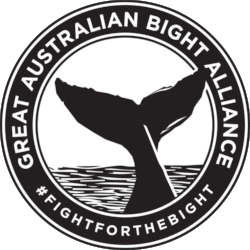Source: The Guardian
Adam Morton, Environment editor
Conservation group say the Norwegian energy giant refused to formally consult with affected groups
Equinor was asked to modify oil drilling plans after analysis showed a potential for spill along the coastline and ocean of the Great Australian Bight. Photograph: Julian Smith/EPA
The Wilderness Society has launched legal action challenging the environmental approval granted to Norwegian energy giant Equinor to explore for oil in the Great Australian Bight.
The conservation group had flagged a possible court case after the proposal to deepwater drill in the Great Australian Bight Marine Park was approved by the federal offshore petroleum regulator in December. It was the second, and most significant, of four regulatory hurdles Equinor needs to clear before it can drill.
Peter Owen, the Wilderness Society’s South Australian director, said Equinor had refused to formally consult affected groups as required. He said the National Offshore Petroleum Safety and Environmental Management Authority, known as Nopsema, had made a legal error in accepting the company’s claims that it had.
Owen said the decision effectively dismissed the concerns of environment groups representing tens of thousands of members, Indigenous custodians with cultural values threatened by offshore drilling and more than 20 local governments responsible for communities and coastal property as not relevant to the approval process.
“We should all be very concerned about the precedent Equinor and Nopsema have set here,” he said. “We have no doubt that if Equinor had fully and legally consulted with these parties, its plans would have been better informed and more robust. Instead, it is our view that it now holds an invalid approval.”
Full Story at The Guardian website

